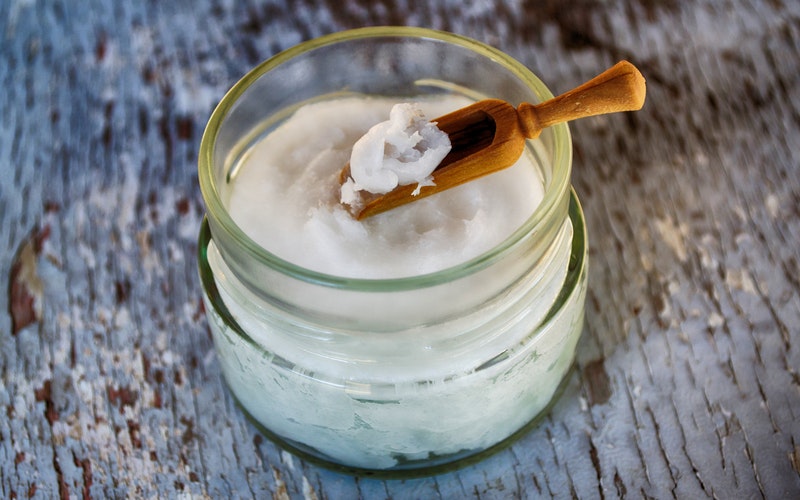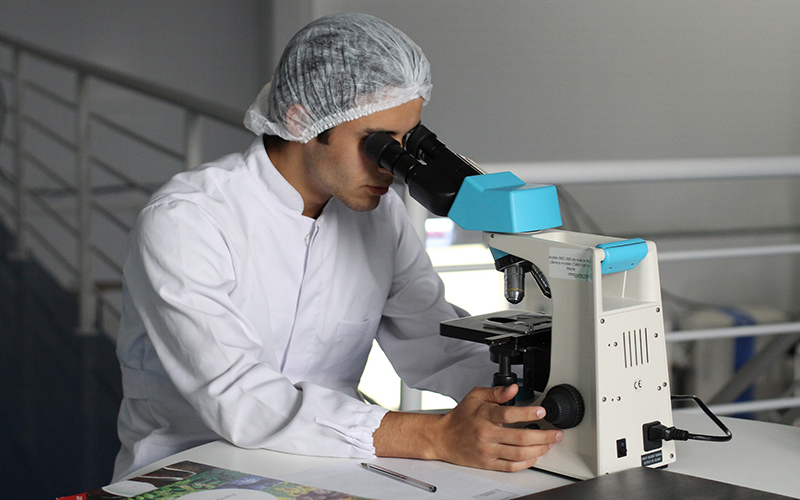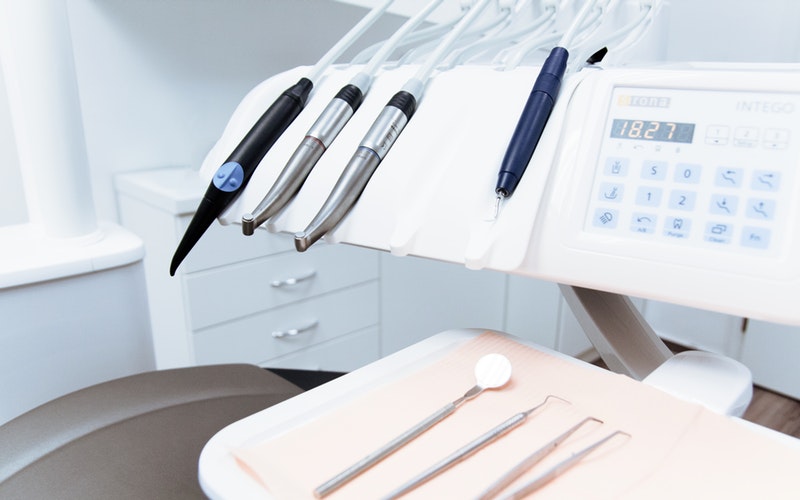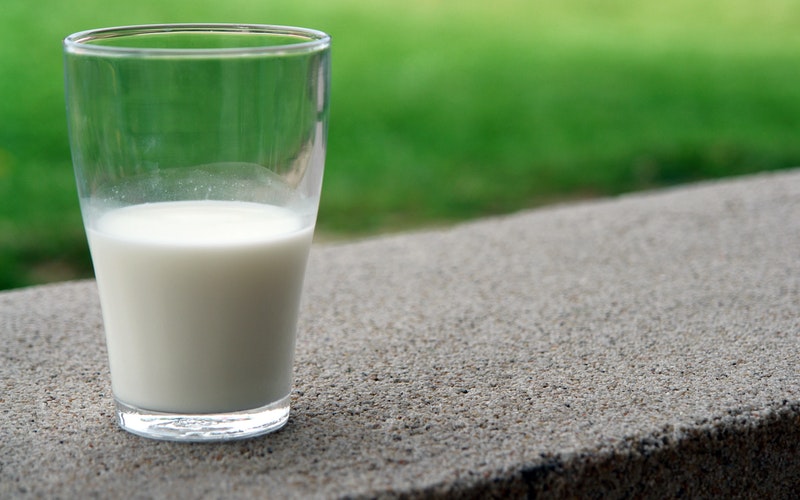Where Did the Tooth Fairy Come From?
For many people, the earliest memories of tooth loss involve trading the lost tooth with the tooth fairy for cash or presents. A rich part of American history, the tooth fairy is a beloved childhood myth that helps children cope with a potentially scary situation. After all, randomly losing a tooth would probably worry a child as much as it would an adult if not for the prospect of trading the tooth for something much more enjoyable. Not many people, however, know how the myth of the tooth fairy began. To honor the adored legend, Erlanger dentist Dr. Henry explores the origins of the tooth fairy.
Dark Beginnings
During the Middle Ages, the importance of ejected baby teeth was darker than the legends of today. Common belief held that witches could use items that people held close, such as clothes, hair, finger/toe nails, and teeth, to create potions and place curses. To prevent harmful black magic from affecting their children, parents would bury the loose baby teeth or burn them in fire. Fortunately, the practice adopted a less ominous meaning. Later, parents would bury their children’s teeth in the garden in hopes that strong, healthy adult teeth would grow in their place.
Tooth Myths Around the World
As you search around the globe, you’ll continue to find legends involving the importance of stashing baby teeth, but the reasons differ depending on the region. For instance, in Asia, people would bury the lost upper teeth in the ground, and toss lower teeth on the roof. The superstition held that the new teeth would grow straight towards each other. Vikings believed that carrying a child’s item, or having a child in your possession, would bring power, luck, and fortune in battle. They would pay children a “tooth fee” for their lost teeth, and would later string jewelry from their collected prizes.
In US culture, we are familiar with the tooth fairy that comes in the night to collect our children’s teeth and leave them some form of monetary compensation. Unfortunately, the legend is not much help after the tooth is lost. To learn how to take care of the new tooth coming in and the ones left behind, schedule a consultation with Dr. Darlene Henry. If you are in or near the 41018 area, call our Erlanger, Kentucky dentist’s office at (859) 344-8500.
Does Your Child Have Trouble Sleeping?
On average, school-aged children up to the age of 12 should get about ten hours of sleep a night. Ten consecutive hours of sleep, however, can be difficult to achieve, even for a kid. Although children are usually more resilient than their adult counterparts, sleep deprivation affects their minds and bodies in much the same way as it does their parents. Erlanger, Kentucky dentist Dr. Henry gives these tips for helping your child sleep better at night.
Invite Sleep
Many factors can keep children from the restful sleep they need. If their wakefulness is accompanied by fever, persistent cough, or other signs of illness, you should consult a physician immediately. However, if your child remains awake but appears otherwise healthy, then you may be able help resolve the issue. Create a sleep-friendly environment in your child’s room. Comfortable pajamas and a quiet ambience work wonders at lulling children to sleep. Close the door to your child’s room to block out noise from other members of the household who have not yet gone to bed.
Stick to the Bedtime Schedule
Having your child go to bed at the same time every night can be extremely difficult, but it is worth the effort. Once the body becomes accustomed to knowing when to sleep, it can regulate itself around the sleep schedule and be prepared to rest when it’s time for bed.
It Was Just a Bad Dream
Nightmares are a common source of childhood sleeplessness. If your child is plagued by regular nightmares, try restricting television and video games at least an hour before bed time. Encourage relaxing activities, like reading a book, during their last waking hour or so. If bad dreams persist, seek advice from your child’s physician. There may be another underlying cause for the night terrors.
If your child exhibits signs of sleep deprivation, but does not seem to remain awake at night, mention the issue to Dr. Henry. The problem may be associated with sleep apnea, a sleep disorder that can deprive your child of deep sleep without him/her realizing it.
For more information on sleep disorders, or to schedule a consultation with Dr. Darlene Henry, call our Erlanger, Kentucky dentist’s office at (859) 344-8500.
Tooth-Healthy School Lunches in Erlanger, KY
As a parent, you worry quite a bit about your child’s wellbeing. Some parents feel a twinge of nervousness, and some have to consciously control their panic, whenever their child is out of their sight, even during school hours. Being concerned about your child is normal, even healthy, and during the school year, that concern can multiply. One thing you shouldn’t have to worry about is what your child is eating at school. Erlanger, Kentucky dentist, Dr. Darlene Henry, gives these tips for packing your child a tooth-friendly school lunch.
Your Child’s Teeth
It is a popular belief that sugar is solely and directly responsible for the formation of cavities. This assumption is wrong; it is not sugar that decays teeth, but the bacteria in your mouth that transform sugar into tooth-destroying lactic acid. Some parents do not consider cavities in their young children as a serious problem because the baby teeth will fall out anyway. The truth is, if decay settles into the primary teeth, the infection can cause the tooth to fall out before its time. That means there will be more time between the loss of the baby tooth and the eruption of the permanent tooth. In that time, the remaining baby teeth can crowd together to make up for the loss tooth, causing overcrowding where the adult tooth is supposed to emerge. Baby tooth decay can also seep into the permanent tooth under it, infecting the tooth before it even rises.
What to Pack
If your child is going to eat something sugary, it is best to do so as part of a meal. The additional food can help dilute the sugar and buffer against acid, plus it is better to eat sugar at one time instead of snacking on it throughout the day. Sodas and fruit juices should be consumed with the meal for the same reason. Aside from water, milk is perhaps the best choice for your teeth. It is free of additives and sugars found in popular juices and sodas, and contains high levels of tooth-healthy nutrients. Calcium is important for your child’s oral health and can be found in foods like yogurt, cheese, fortified cereal, and broccoli. Meats, including chicken and turkey, also contain phosphate, which is another important mineral for tooth enamel formation.
To learn about more healthy choices for your child’s lunch, or to schedule a consultation with Dr. Henry , call our Erlanger, Kentucky dentist’s office at (859) 344-8500.
Dedicated Children’s Dental Care in Erlanger, KY
For the most part, the habits we teach our children remain with them throughout their lives to varying degrees. One of the most important habits we can teach them as young ones is the proper way to care for their teeth. Erlanger dentist Dr. Henry understands that children learn more effectively when they’re having fun. The doctor and our staff go out of our way to treat children with gentle compassion and make their dental appointments fun.
Give Them Tools for Good Oral Hygiene
The best way to protect your child’s oral health is to teach him or her how to properly care for their mouths. By learning at an early age to brush their teeth twice a day and floss at least once, children become empowered for a lifetime of excellent oral health. Convincing them that it’s a good idea to visit the dentist every six months can be a little more challenging for some children. Luckily, Dr. Henry’s nurturing manner and love of children makes most of our younger patients look forward to their dental visits.
Checkups and Cleanings for Children
Routine dental checkups and cleanings are important at any age. Aside from polishing your teeth, our exceptional hygienist helps prevent the development of gum disease by carefully removing plaque buildup and tartar. During your children’s visit, we also enjoy teaching them proper brushing and flossing techniques to optimize their oral health care at home. Adhering to a six-month schedule, or more often if Dr. Henry advises it, will allow us to spot signs of infection or other oral health issues and implement treatment early. Chances for successful treatment are increased the earlier an issue is detected.
Additional Protection
If your child is prone to developing tooth decay, or if you simply want to maximize your child’s oral health defense, Dr. Henry offers a fluoride treatment for additional protection against tooth decay. The treatment consists of a fluoride varnish that is applied to the surface of the teeth. To help protect vulnerable molars at the back of your child’s mouth, Dr. Henry may suggest dental sealants, which are thin plastic coatings that protect the chewing surfaces of teeth.
To learn more about ensuring your child’s exceptional oral health, or to schedule a consultation with Dr. Henry, call our Erlanger, Kentucky dentist’s office at (859) 344-8500.
Kentucky Dentist Discusses the Cavity Fighting Molecule
Imagine a world without cavities. Since 2005, that’s exactly what Jose Cordova of Yale University and Erich Astudillo from the University of Chile have done. Their efforts have netted them the discovery of a molecule that could revolutionize dental care by actively fighting tooth decay. Erlanger dentist Dr. Darlene Henry discusses the discovery and what it could mean for the future of human teeth.
The Basics of Tooth Decay
Tooth decay is almost as common as the cold. In fact, cavities are the number one disease in children. The accolades for this achievement go to the bacteria Streptococcus mutans, or S. mutans, which metabolize refined sugar and turn it into lactic acid. They do not need oxygen, so they favor sneaking into the tight spaces between adjacent teeth and quietly mounting acid attacks against your teeth every time you eat or drink. S. mutans inhabits the oral cavity and contributes to the formation of plaque (bacterial plaque). The only way to effectively protect your teeth from the decay it can cause is to neutralize its acid production. Traditionally, this is done by brushing and flossing your teeth at least twice a day, attending your six month dental checkup, and refraining from sugary foods and beverages like candy, sweets, fruit juices, and sodas.
Going on the Offensive
In order to reduce the rate of the tooth decay epidemic, Cordova and Astudillo began researching ways to actively fight the formation of decay, instead of just protecting against it. The molecule they’ve discovered, which they’ve named Keep 32 after the number of teeth in a human mouth, actively seeks and kills the S. mutans bacteria. The molecule can be incorporated into products like toothpaste, mouthwash, or candy, and for the first time in human history, can pave the way for cavity-proof teeth. The researchers have several parties interested in investing, and are awaiting trials on humans.
In the meantime, be sure to continue your daily oral hygiene routine, and visit Dr. Henry at least once every six months for a thorough checkup. To learn more about your oral health, or to schedule a consultation, call our Erlanger, Kentucky dentist’s office at (859) 344-8500.
It’s Not Too Late for You Perfect Summer Smile!
Although July is halfway over, summer is still going strong. With all of the excitement of vacations and beaches and summer celebrations, you may not have had time to invest in your smile as you had hoped. Erlanger, Kentucky cosmetic dentist Dr. Darlene Henry has you covered with a variety of cosmetic dentistry options to help you achieve the perfect smile you’ve dreamed of before the summer’s over.
Teeth Whitening
Your teeth do not require anything dramatic to become stained or slightly discolored. Consuming certain foods and dark-colored beverages, including coffee, tea, wine, and soda, can exacerbate the staining of your teeth. Even the smallest discoloration can throw a perfect smile slightly off. Luckily, tooth whitening is a simple but effective cosmetic dental procedure. With our at-home teeth whiteningsystem, you can apply the treatment in the comfort of your own home and noticeably brighten your smile after just 10-14 days.
Dental Bonding and Contouring
If color is not your issue, but you have a slight imperfection such as a chipped, crooked, or slightly misshapen tooth, Dr. Henry may recommend a dental bonding and/or contouring procedure. Tooth contouring involves gently removing a small amount of tooth enamel in order to change the size and shape of an imperfect tooth. Dental bonding involves using a tooth-colored composite-resin material to cover and reshape an imperfect tooth. Dr. Henry will apply the resin to the tooth, mold it into the ideal shape, and then harden the material under a curing light. Unfortunately, bonding does not respond well to tooth coloring. If you have more than one imperfect tooth, porcelain veneers may be the best option for you.
Porcelain Veneers
Porcelain veneers are the ideal option for rectifying more than one imperfection with the same procedure. Veneers are thin, almost shell like pieces of dental porcelain that are placed over the front face of your teeth. Dr. Henry removes a small amount of enamel from the front of the teeth to be covered, then bonds a custom-made set of veneers over the front. Veneers are more durable than bonding and last longer than whitening. Ask Dr. Henry for proper cleaning and maintenance instructions for you new porcelain veneers.
Summer is no longer young, but you still have time to make your smile young and perfect again. To learn more about your oral health, or to schedule a consultation with Dr. Henry, call our Erlanger, Kentucky dentist’s office at (859) 344-8500.
Erlanger Dentist Discusses Persistent Bad Breath
If you suffer from chronic halitosis, you’ve probably tried every remedy in the book, including endless streams of mints and chewing gum. These breath fresheners can mask the odor for a while, but halitosis can usually be treated with an improved oral hygiene routine. Make sure you brush and floss your teeth at least twice a day, and visit your dentist at least every six months to ensure the continued good health of your teeth and mouth. However, if you’ve tried all of this, and your halitosis still persists, there may be another lesser-known cause behind your malodorous breath. Dr. Henry discusses the possibility that your halitosis may be emanating from your lungs.
Bad Breath from Disease and Infection
After a little contemplation, it makes sense that a disease or infection in your lungs would cause your breath to smell a bit foul. After all, your breath originates in your lungs before it ever even reaches your mouth. Diseases including lung cancer, asthma, and cystic fibrosis, among others, can taint your breath with distinctive odors that can actually be utilized in early detection. Since we exhale the carbon dioxide that our blood carries to our lungs, diseases that affect the blood can have a similar effect on your breath as lung diseases (i.e., diabetes, kidney and liver disorders, etc). Unfortunately, there is no treatment for bad breath caused by disease. Treating the disease should suffice to rid you of its symptoms.
Foul Breath from Bad Habits
Smoking and drinking are not only bad for your oral and overall health; they’re bad for your breath as well. Aside from the obvious negative effects on your mouth that can cause your breath to be foul, smoking causes carcinogens to accumulate in your lungs (smokers’ lungs). If you are a smoker, at some point you’ve hacked up a mass of darkly-colored phlegm. That phlegm covers your entire lungs, and it stinks. The obvious and only solution is to quit smoking. Contrary to popular belief, alcohol breath originates in the lungs as well, not the mouth. Alcohol enters your bloodstream and its odor is released when you exhale, which is why mints and chewing gum will rarely fool a breathalyzer test. Time will rectify this cause of bad breath as the alcohol content is purged from your blood.
To learn more about your oral health, or to schedule a consultation with Dr. Henry, call our Erlanger, Kentucky dentist’s office at (859) 344-8500.
Erlanger Dentist Explains the Importance of Your Checkup
We’ve been told for most of our lives to brush our teeth twice a day, floss at least once, and visit the dentist every six months for a checkup. If you’ve heeded this advice, chances are your dentist tells you what a great job you’ve been doing taking care of your mouth and teeth. A few lucky people may never need any dental work done. That does not mean, however, that the dental checkup is unnecessary. Dr. Darlene Henry explains the importance of your dental checkup and why you shouldn’t ignore it.
Maintaining your Oral Health
Brushing and flossing removes bacteria and plaque from your teeth and gums before they have a chance to cause damage. Unfortunately, plaque clings to every surface of the tooth, including below the gum line. While you may pay careful attention to brushing every surface and flossing in between every tooth, nobody is perfect, and you may miss some spots or simply be unable to reach them. When plaque remains for more than 48 hours, it calcifies (hardens) into tartar. Unlike plaque, tartar cannot be removed by simply brushing, flossing, or rinsing. Our hygienist will conduct a thorough, professional cleaning to remove all traces of tartar, especially along the gum line, to prevent the formation of gum disease. If tartar is not caught and removed during your checkup and cleaning, you may not know that you’re at risk until your gums exhibit signs, at which point gingivitis has already set in, and gum disease isn’t far behind.
Early Detection at Your Kentucky Dental Checkup
Aside from gum disease, your mouth can tell you a lot about what’s going on in your body as well. Early signs of many systemic diseases, including oral cancer, first appear as lesions in the mouth or other oral troubles. As with all oral and overall health issues, early detection can be the defining factor in successful treatment. To learn more about maintaining and optimizing your oral health, or to schedule a consultation, checkup, or cleaning, call our Erlanger, Kentucky dentist’s office at (859) 344-8500.
The Milk Quiz, by Your Erlanger KY Dentist
Milk is polarizing; you either love it or hate it, but there’s rarely an in-between. Regardless of how you feel about milk now, though, it is the only substance that every human has consumed at some point in their lives (aside from water, of course). In fact, it is the first food that we taste as newborn babies. Even if you hate milk, you cannot deny the benefit it has on your health. After all, milk does your body good. In honor of National Dairy Month this June, Dr. Henry tests your knowledge of milk.
- Milk contains high levels of _______ , which strengthens your bones and helps you fight tooth decay.
- Water
- Sugar
- Carbohydrates
- Calcium
- How much of your body’s calcium (in percentage) is stored in your bones and teeth?
- 50%
- 75%
- 90%
- 100%
- Milk can help ease dry mouth symptoms
- True
- False
- Drinking milk can help undo tooth decay and fractures.
- True
- False
Answers
- D—Calcium is not only found in milk, but in the enamel of your teeth as well. Sugars and starches turn the plaque in your mouth acidic, causing the bacteria to attack tooth enamel and sap it of essential minerals (i.e. calcium). Milk replenishes these minerals, allowing the tooth enamel to strengthen.
- C—About 90% of the calcium in your body is found in your bones and teeth. The remaining 10% circulates throughout your blood stream, facilitating processes such as blood clotting and blood vessel contraction and expansion.
- A—Milk acts as excellent artificial saliva for patients with dry mouth. It moisturizes the inside of your mouth without the risk of sugary beverages and soft drinks. Chewing and swallowing can be difficult without adequate saliva. Milk also provides minerals and nutrients that dry mouth patients may not get enough of due to difficulty eating.
- B—False. Unlike bones, your teeth do not contain living cells to repair their own damaged tissue. By utilizing certain minerals, tooth enamel can strengthen if it grows weak, but once a tooth cracks, decays, or is otherwise damaged, it will require professional dental treatment.
To learn more about nutrition and your oral health, call Dr. Henry at our Erlanger, Kentucky dentist’s office at (859) 344-8500 to schedule a consultation.
The Milk Quiz, by Your Erlanger KY Dentist










